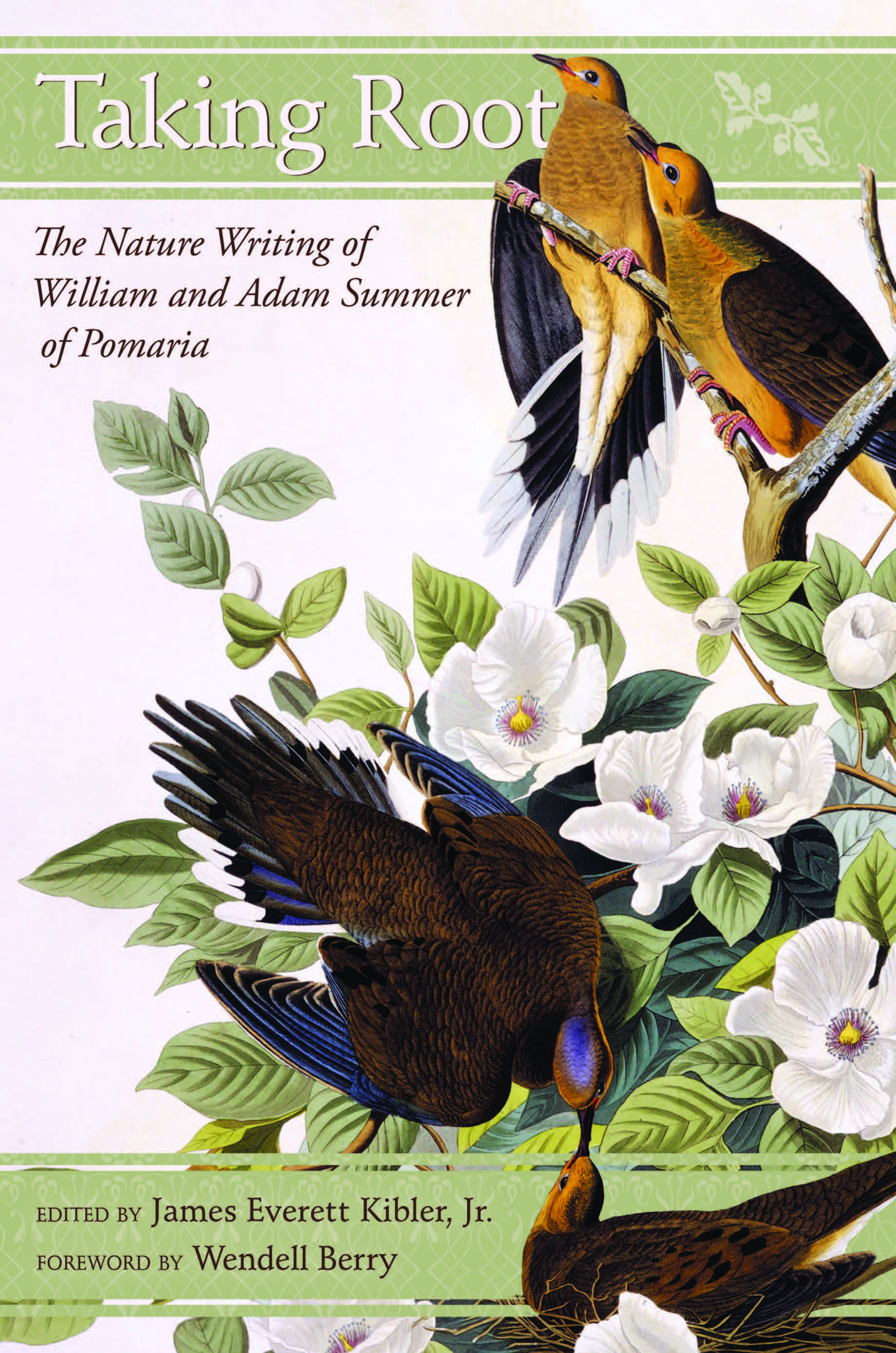Black History Month Sale: 40% off all books, plus FREE SHIPPING on all U.S. orders over $50 | Use code JBHM26

Size: 6 x 9
Pages: 328
Illustrations:
edited by James Everett Kibler, Jr.
The inclusion of this book in the Open Carolina collection is made possible by the generous funding of
"I first met James Kibler in 1993 through a hand-written letter and scholarly article he hoped to publish in Magnolia, the journal of the Southern Garden History Society, which I edited. While I knew little about Pomaria at the time, I was especially intrigued by William Summer—this passionate, poetic, and incredibly astute plantsman. Now, nearly a quarter century later, Kibler fully reveals William and Adam Summer and their remarkable, often lyrical contemplations on nature and their horticultural world."—Peggy Cornett, curator of plants at Monticello
"Taking Root reveals something unexpected. This collection of essays drawn from antebellum southern periodicals reveals two geniuses of romantic American nature writing and agricultural letters, brothers William and Adam Summer of Pomaria. Editor James Kibler has selected writings that present the brothers in a variety of guises—as conservationists, ethical hunters, walking poets, scientific farmers, experimental plant breeders, and prophets warning against the ruin of nature."—David S. Shields, Carolina Distinguished Professor of English and chair, Carolina Gold Rice Foundation
"[Adam and William Summer] were farmers and students of farming, of crops and livestock, their knowledge both scientific and familiar. They were sound critics of farming and of human landscapes, their standards taken properly from the natural world and from Nature, the common mother of all us creatures, the Great Dame herself. By those standards they were strenuously indignant in the presence of any abuse of the land, and they were clearly in love with the works of Nature and of good farmers."—Wendell Berry, from the foreword
"Everyone engaged in the nineteenth-century gardening and horticultural history of the American South can be grateful that James Everett Kibler Jr. has made the study of Pomariathe nursery — and the plantation — and the lives of its proprietors his life's work."—Magnolia
Copyright 2026
Website By Morweb.org